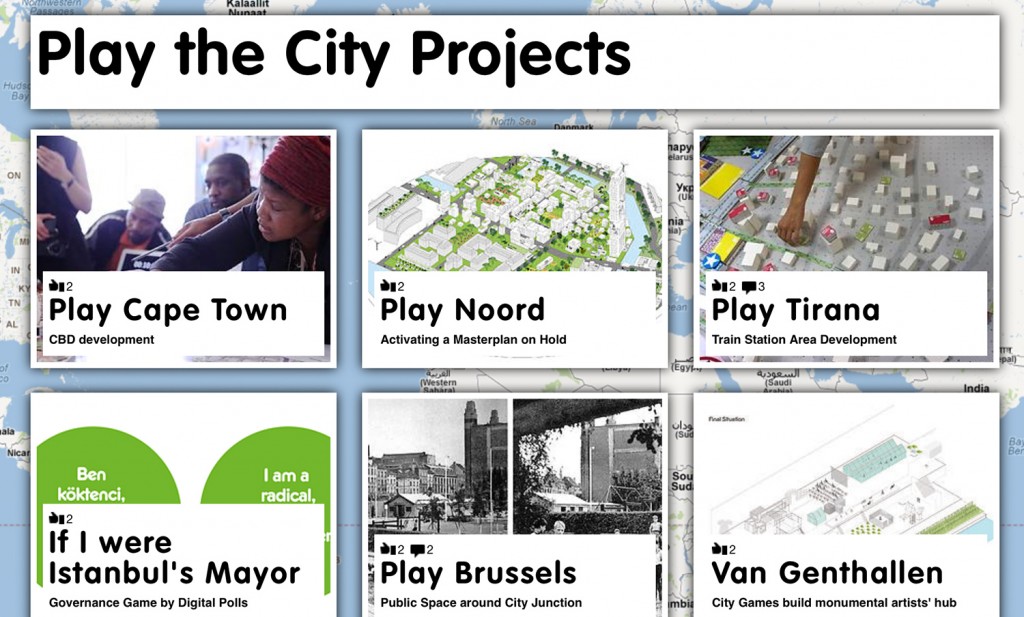Digital games have nowadays become active games additionally by exploring the surrounding physical environment. www.playthecity.it is an Italian site where people may subscribe to a specific event/game running in the city. People are divided into groups and they have to fulfil different tasks around the city by using their mobile devices within a certain amount of time. The city is no longer only a practical place for the circulation of people but rather a place of active exploring, discovery and learning.

First and Last Templar. Treasure Hunt in the historic centre of Ferrara | http://www.playthecity.it/evento/thehuntferrara-09-04-2016/
One of the latest Play the City events was “The First and Last Templar, Treasure Hunt in the historic centre of Ferrara” (picture above) and it can be defined as a “location-based mobile game (LBMG)”. One fundamental requirement to participate in the hunt is to have at least one 3G smartphone per team in order to be connected for the entire time of the game alongside the use of the city as the physical game space. This wholly satisfies the definition of LBMGs as “games played with mobile phones that are equipped with location awareness (i.e. GPS) and Internet connection” (Hjorth, 2011, pp. 362-363).
It is fundamental to have the city as an in between game space to let the virtual and the real merge together. In fact, “these games connect physical and digital spaces, in that players may be walking around urban spaces” (De Souza e Silva, 2009, pg.3). In addition, the motto of the site is “not just visit, play” and it is self-explanatory. This particular site operates in different cities around Italy but it also exists a bigger site based in the Netherlands (http://www.playthecity.nl) where the work is on a bigger scale.
If the Italian organization is for mere fun and amusement, instead this other Play the City deals with social change and with the challenge of urban development. For instance, “Play the City of Cape Town” (http://www.playthecity.nl/17328/en/play-cape-town) raised awareness in the citizens and stakeholders about the lack of investments in a specific area by setting up game sessions. In the end, virtual games have the potentiality to stimulate work action in the city whether by exploring and spending valuable time in the city or when trying to improve the quality of living.
References
Play the City.it, www.playthecity.it [Accessed: 17 April 2016]
Play the City.nl, www.playthecity.nl [Accessed: 17 April 2016]
Play the City.nl, Play Cape Town, http://www.playthecity.nl/17328/en/play-cape-town [Accessed: 17 April 2016]
De Souza e Silva, A, and D. M. Sutko, eds., 2009, Digital Cityscapes: Merging Digital and Urban Playscapes. New York: Peter Lang: 1-17
Hjorth, L.,2011, Mobile@game cultures: The place of urban mobile gaming. Convergence, 17(4), 357-371.


